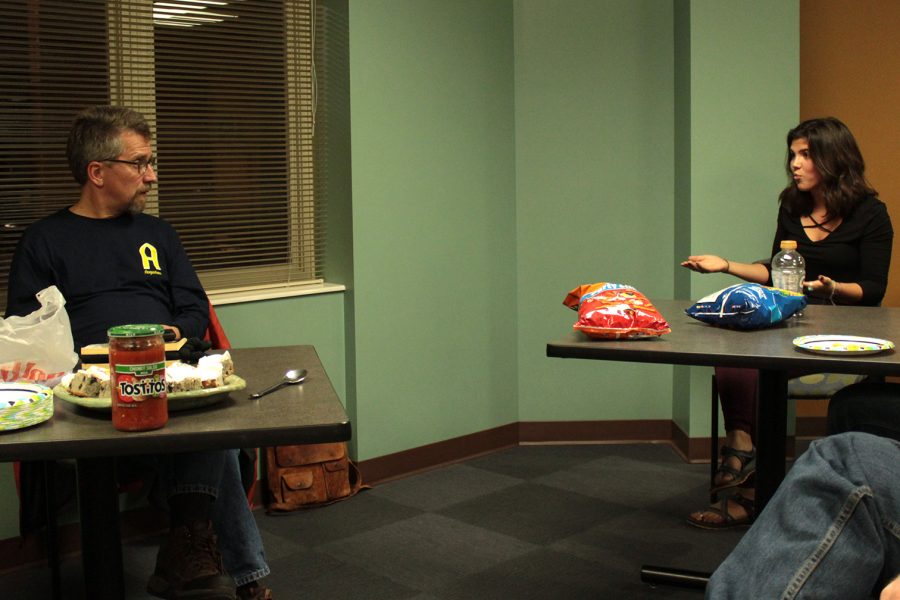On Sunday night, faculty and staff hosted discussions for dialogue in the main lounges of the dormitories for students in reaction to the outcomes of the election and how it will be taken in the Augustana community.
Faculty members decided to have these discussions to address the community’s need for communication about recent events and to talk about why this election was different than others in the past.
“This election has been the epitome of the question ‘How you do have humane discourse about the other?’ It has been divisive dichotomous — words like good, bad, and evil are being thrown around very easily,” communication studies professor Sharon Varallo said.
According to Varallo, now is the time to come together as a campus and engage in discussions with each other that might not have taken place before.
“The rhetoric has been so difficult that it has already affected us, but not everybody understands, and so we need more civil discourse: times where we slow down and just talk to each other and listen,” Varallo said.
Few students were able to participate in the sessions, but much discussion was created on post-election topics ranging from the political polarization of big cities to small towns, protests and demonstrations, signs on classroom doors supporting marginalized students, and recognizing privilege with an open mind. The biggest point of concern was how students on the Augustana campus would react.
Sophomore Rachel Cheval sees this as a chance for the community to get to know each other through talks.
“It helps to have everyone’s view point on the election because all these people are coming out with all this hatred toward different groups of people, and it sucks. But now you can see who’s out there. You can get their viewpoints and talk to them and see why they think that way, ” Cheval said.
Education about heritage from a young age was a solution that Sophomore Micheli Oliver thought would help people understand where they all come from without having labels, but political science professor Mariano Magalhaes pointed this out as a long-term solution.
“We have a division now, we have people on campus now,” professor Magalhaes said, as he detailed the fear that the students and community currently have.
Faculty members showed most clearly that their top priority was creating safe spaces and helping students know that they were both supported and respected in the community.
“I just want students to know that I’ll protect them. I will not allow any bigotry in my classroom, and I’ll stand by them and make them feel safe — both inside and out of the classroom. I want them to know that they can count on me as an ally and that I stand for what is right, regardless of the color of their skin or sexual orientation. We’re all humans, and all humans need to be respected,” assistant professor of chemistry Jose Boquin said.
Other professors want to remind everyone that communication will play an essential part in understanding where both political sides are coming from, and how we all need to refrain from demonizing each side.
“I don’t want to marginalize the ‘other’, they have the right to be conservative and embrace conservative values, but we do have a line that we draw…We have to model and teach, embracing that conservative part and leaving the hate speech and threatening behavior behind,” communication, science and disorders professor Kathy Jackielski said. “I just want to make sure that when we talk, that they’re in the conversation.”
Provost Pareena Lawrence and Dean of Students Evelyn Campbell sent out an email earlier in the week detailing other events that will be held where students are able to raise concerns to administration and faculty. Both will be available on Monday Nov. 14 in Gavle 1 and 2 from 9-5 p.m. in the Gerber Center for anyone that would like to stop by.
Categories:
Campus reflects on election results
November 14, 2016
Micheli Oliver, sophomore, discusses with Kai Swanson, special assistant to the president, the importance of ethnicity and family history in creating more global citizens. Photo by LuAnna Gerdemann.
0
Tags:
More to Discover











































































































